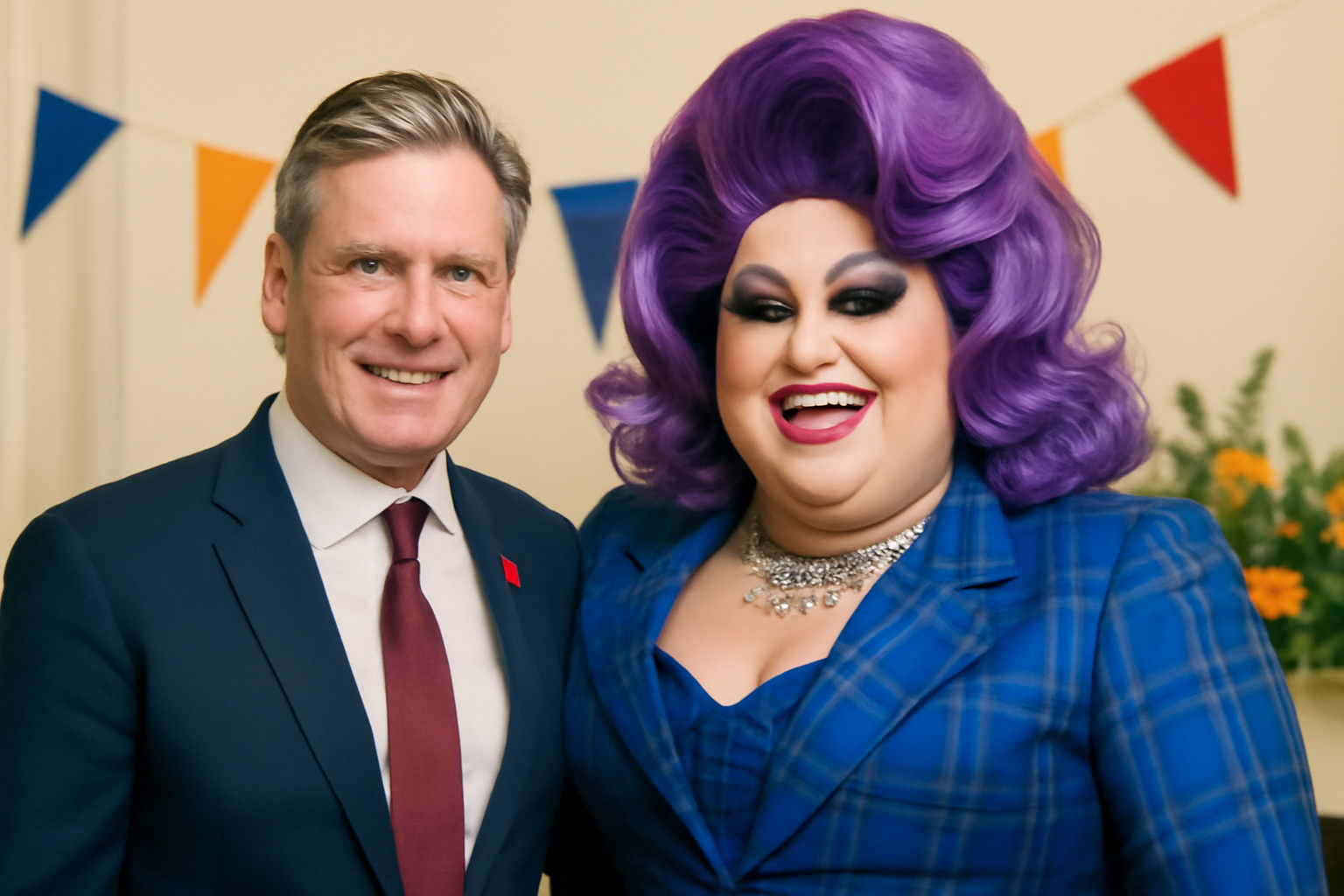
In a move that sparked controversy amongst certain groups, Prime Minister Keir Starmer extended an invitation to Lawrence Chaney, the celebrated winner of RuPaul’s Drag Race UK Season 2, to join him at a Burns Night celebration. The event, held on the 25th of January, is an annual occasion dedicated to honoring the legacy of Scotland's national bard, Robert Burns.
Celebrating Diversity at Burns Night
Burns Night, traditionally marked with haggis, whisky, and the recitation of Burns’ poetry, took on an additional layer of celebration as it became a platform for embracing Scotland's diverse cultural landscape. Lawrence Chaney, whose victory in 2021 marked a milestone as the first Scottish drag performer to win the title, was a natural choice to represent contemporary Scottish creativity and inclusivity.
The Prime Minister's post, shared on his official social media channel, featured images of the event where Chaney was seen engaging with Starmer. The images quickly garnered significant attention, accumulating over two million views. However, while many praised the gesture as a wonderful celebration of inclusion and modern Scottish culture, others reacted negatively.
Mixed Reactions Online
The social media post was not without its detractors. Critics quickly took to the platform to express their disapproval. Comments ranged from questioning the relevance of a drag performer at a Burns Night event to more pointed criticisms of the Prime Minister himself. One commenter lamented, "Why is there always a drag queen," reflecting a sentiment among some that the inclusion was out of place.
Another individual expressed disdain by referring to Chaney as "a bloke in woman face," a derogatory term aimed at undermining the artistry and cultural significance of drag. Such comments underscore the ongoing tension between progressive movements and more traditional or conservative viewpoints.
Artistic Expression and Scottish Heritage
Despite the backlash, many supporters highlighted Chaney's status as a Scottish creative. Their presence at the event was seen as a celebration of Scotland’s vibrant and evolving artistic landscape. It was a testament to how Scottish culture continues to grow and embrace diversity, much like the works of Robert Burns, who himself was known for challenging societal norms through his writings.
Those in favor of the invitation pointed out that Burns, during his lifetime, was a revolutionary figure, often advocating for change and challenging the status quo. In this light, Chaney’s participation could be viewed as keeping in line with the spirit of Burns' legacy—pushing boundaries and fostering inclusivity.
A Broader Discussion on Inclusivity
The event and the ensuing responses highlight a broader societal discussion about inclusivity and representation. The criticism faced by both Starmer and Chaney illustrates the challenges that still exist when promoting diversity in public spaces. However, it also reflects the progress made, as public figures and leaders increasingly recognize the importance of representing a range of identities and experiences.
For Chaney, the experience was another opportunity to showcase their pride in Scottish heritage while simultaneously breaking down barriers. Their presence at such a prominent event underscores the vital role that queer creatives play in shaping modern cultural narratives.
Ultimately, while the controversy surrounding the invitation highlights societal divisions, it also brings to the forefront the ongoing efforts and discussions aimed at achieving a more inclusive society. As Burns Night celebrations conclude, the conversation sparked by this event continues, reflecting on how best to honor traditions while embracing change.
In a world where acceptance and understanding are continually being negotiated, events like these remind us of the power of visibility and the importance of welcoming diverse voices to the table. As Scotland celebrates its cherished heritage, it does so with an eye toward a future that is more inclusive and representative of all its people.
As the dialogue progresses, it remains crucial for public figures and leaders to champion diversity, ensuring that celebrations like Burns Night continue to reflect Scotland's rich and diverse cultural fabric. Lawrence Chaney's participation in this year's celebration is a poignant example of how far we have come and how much further we have to go.
Related Posts
Triumphant Trans Woman Wins Legal Battle and Inspires Others to Stand Up for Their Rights
Breaking new ground: a landmark victory in transgender rights After battling in courtrooms and enduring endless challenges, Diana Portillo, a transgender woman, has secured a monumental victory in her decade-long fight against workplace discrimination. The result? Nearly $1 million awarded in a historic settlement. But this isn't just a win on paper—it represents a powerful precedent in combati [...]
Pride Month in Latin America: Protests and Demands for Equality
**Celebrating Pride and advocating LGBTQ+ rights in Latin America** Pride Month in Latin America was a lively mix where celebration met activism. Communities united, not just throwing a party but making a stand—demanding equality and pushing governments toward better protection and rights recognition. Throughout Latin America, pride events erupted in marches and cultural displays, each with a c [...]
Transgender Erasure Actions Implemented by National Park Service
```html Trump administration's impact on national park service and transgender recognition The Trump administration made notable moves in undermining transgender representation, which included directing agencies like National Park Service not include "T" and "Q" when they refered “LGBTQ” in any official communication. This move seems part a broader plan by this administration aimed at reducin [...]